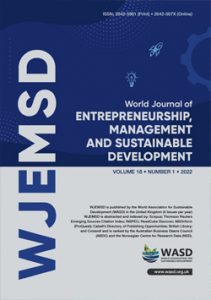Using integrated assessment to develop policy options – trade, land use and biodiversity A case study of the sugar industry in Jamaica, Prof. Anthony Clayton, K’adamwe K’nIfe and Dr. Andrew Spencer
 Prof. Anthony Clayton
Prof. Anthony Clayton
Institute for Sustainable Development
University of the West Indies, Kingston
Jamaica
K’adamwe K’nIfe, Dr. Andrew Spencer
Department of Management Studies
University of the West Indies, Kingston
Jamaica
Email: Anthony.clayton@uwimona.edu.jm
DOI: 10.1108/20425961211247770
Purpose: The purpose of this paper is to report on the application of integrated assessment (IA) methods to examine the impact of policy changes on Jamaica's sugar industry; also the potential implications for the economy, employment, society, environment and biodiversity.
Design/methodology/approach: The project applied the integrated assessment (IA) methodology described in the United Nations Environment Programme UNEP‐WCMC/ETB 2009 document “Biodiversity in Integrated Assessment of Trade Policies in the Agriculture Sector”.
Findings: Jamaica's sugar industry has survived because of European Union subsidies, which are now being phased out. The Government therefore decided to divest the industry and refocus it on ethanol production to reduce oil imports. The plan failed, because it depended on factors which were not under the Government's control; specifically, external trade regimes and tariffs. The application of IA identified several possible future scenarios for the industry and developed a solution that would achieve a range of goals, moving away from extensive, low‐value forms of agriculture to intensive, high‐value forms, increasing revenue, profits and skill transfer, while simultaneously reducing environmental impact.
Research limitations/implications: The main limitation is the specific focus on one traditional, uncompetitive industry, so results have to be generalized with caution to other sectors with different characteristics.
Originality/value: This paper draws on a much longer technical report titled “The Sugar Industry in Jamaica” written by Anthony Clayton, K’adamwe K’nIfe and Andrew Spencer for the United Nations Environment Programme, Division of Technology, Industry, and Economics, Economics and Trade Branch in 2009. This paper focuses on the main conclusions with regard to the use of IA, and updates the findings, demonstrates the utility of IA methods and shows how Governments can use IA to avoid serious, costly policy failures, and increase the chances of successful outcomes.
Keywords: Integrated assessment; Trade; Land; Biodiversity; Government policy; Sugar industry; Jamaica.
Citation: Clayton, A., K'nIfe, K. and Spencer, A. (2012), "Using integrated assessment to develop policy options – trade, land use and biodiversity: A case study of the sugar industry in Jamaica", World Journal of Entrepreneurship, Management and Sustainable Development, Vol. 8 No. 2/3, pp. 170-182. https://doi.org/10.1108/20425961211247770

